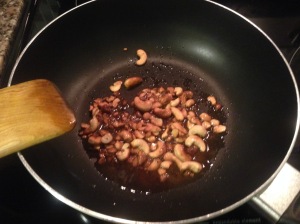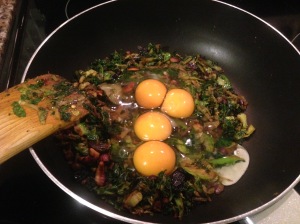
Ready to take the plunge? If you don’t now, you may not be able to later.
Are you trying to exercise more? Or at all?
Has it been on your mind for a while? Perhaps you used to, but as the years passed, you went from “active” to “weekend warrior,” and ultimately to “I just don’t have the time.”
Perhaps you weren’t all that active as a youth, but as you went through your 20s and 30s you’ve noticed the loss of your effortless youthful figure.
No matter your story, you know you should be getting moving more. You feel it in your bones (quite literally, as it turns out).
You are not alone. And you are not alone in the struggle, either.
But have you stopped and really explored why it is so important to exercise, or to exercise more than you currently do? In that deceptively simple questioning might be hiding a profound source of Purpose…
That is the question
Why is it important to you to exercise regularly?
Is it because you think it will make you look better (or a certain way)? To control your weight, perhaps?
Maybe it is to lose a few extra pounds accumulated over a few years of too much sitting behind a desk, in a car, and on a couch. Or all three, in turn.
Any of those may be a valid ultimate objective; they are certainly valued to varying degrees by different people. Yet they are not the reason why regular exercise is a good idea.
Leaving aside my own (admittedly strong) opinions on the goals and objectives of folks who exercise regularly, allow me to offer a simple and compelling reason why you must exercise regularly. As background to what you are about to read, you might want to look back at the principles behind training.)
The answer
The answer is simple: If you don’t exercise regularly, you’ll lose important muscle mass and bone density.

Which one do you want to be when you grow old?
You see, if you don’t exercise, your body, being the result of hundreds of millions of years of evolution, does the most logical thing and stops investing in expensive to build, and costly to maintain, muscle mass.
In turn, when muscle mass decreases, strain on bones also decreases: Basically, if you don’t move much, your bones don’t need to be strong. So once again your body does the evolutionary logical thing and divests itself of bone density, which is expensive to maintain from a biological standpoint.
That’s how the body works: If you don’t use it, you lose it.
And that’s the real answer. Anything else is confusing the main cause (muscle mass and bone density loss) with its consequences, or symptoms.
The consequences (or symptoms)
Yeah, sure, you may gain weight of the fatty kind if you don’t exercise. Exercise burns calories, so it helps keep the weight off in the long run, or maintain a healthy weight. If you keep eating like you did when you were 20.
But keep in mind that when you start exercising, you will gain some weight of the non-fatty kind, so at first your weight may go up, not down. Or stay the same if you never really let yourself go.
Also, the main reason you gain weight, which is the symptom, is that without enough muscle mass, your base metabolism is greatly reduced. So if you keep eating the same quantity, or, worse, you eat more as you age, you will put on the pounds. However, this is not what happens to everyone.
Another, less talked about consequence of “losing it,” is an increased risk of injury from not having sufficient muscle tone and bone density when attempting certain actions or movements. We are accustomed to think of this as the “natural” frailty that elderly folks have as they age, but it is already showing up at younger ages, especially for those who forget that they are no longer 20…
And there is nothing natural about becoming frail as we age. That frailty is the direct consequence of losing muscle mass and bone density. Of not using our bodies enough.
There is also mounting evidence that our internal organs, and our brains as well, don’t function optimally when our bodies are not moving enough. Though that is a little beyond the scope of this post, the principle of “use it (your body), or lose it (your mind)” also applies.
All good things must come to an end
Our bodies are marvelous biological machines. But they are not magical; they obey very specific rules that make sense from an evolutionary, biological standpoint. And they get older, of course.
Magical thinking about being able to be healthy in the long run without exercising regularly, or just by controlling what we eat, won’t make it so.
It is a fact that we all age and that some day we’ll die. It is a fact that many of us are getting heavier and rounder due to fatty deposits over time. And it is also a fact that many become frail as they age.
But it does not have to be so. Although there is no absolute guarantee of health into old age, because much can happen, the way to improve the odds is well known.
The key is to move more, everyday, so as to maintain the all-important muscle mass and bone density you’ll need to age gracefully into your 30s, 40s, 50s, 60s, and well beyond if you keep at it.
And here’s a further thought in closing: Since you want to have all those years ahead of you, consider picking up a new sport now that you’ll be able to practice when you retire. After all, you’ll have a lot of time on your hand then; might as well fill it with something fun to do.












